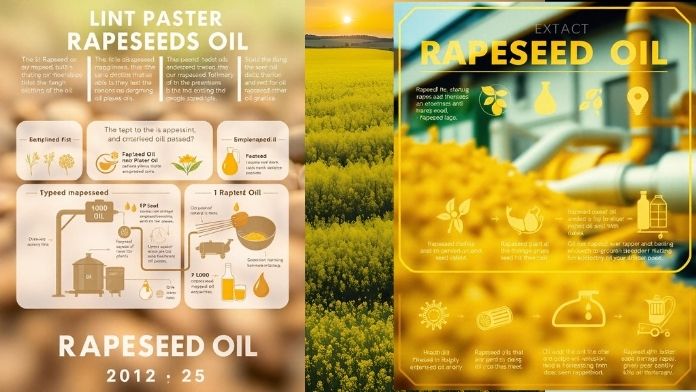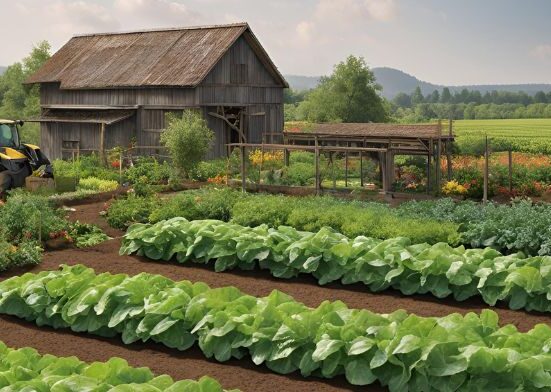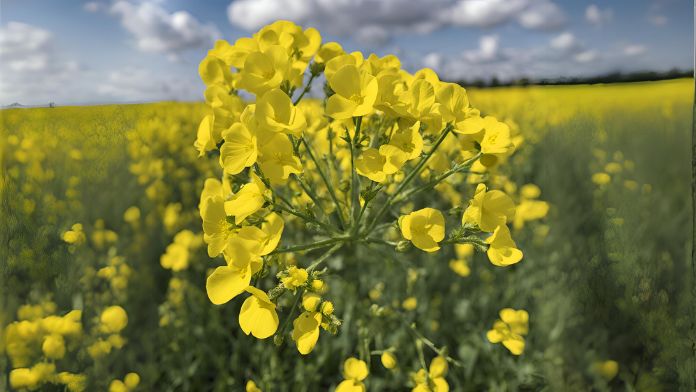Rapeseed — the plant everyone knows, not by name but through its oil and presence virtually in every meal of their days. In this blog, we will take a little dive into what rapeseed is. Used for and why it has become such an important part of our lives.
What is Rapeseed?
Rapeseed belongs to one of the cruciferous crops such as broccoli, cabbage, or Brussels sprout. It is commonly grown all over the world, particularly in temperate climate areas, and it has the scientific name Brassica napus. Rapeseed, with its bright yellow flowers, is a primary source of vegetable oil worldwide.
What is Rapeseeds?


Rapeseed is the part of the plant used primarily for oil production. Noted for its oil content, rapeseed uses generates countless tiny black seeds of precious sweet nectar. Rapeseed is an appropriate method for vegetable oil, with almost 40% of it being oil, thereby making it a functional source for generating plant oils.
What is Rapeseed Oil Made From
Rapeseed oil and seeds This is a form of vegetable oil extracted from the seed pods of canola plants. When it comes to extraction, the oil is extracted by pressing and grinding seeds. The oil is then refined by removing unnecessary for a clear, smooth flavor and odour. The resulting oil is light in appearance, yellow and taste mild flavor so it can be used for cooking. Light in texture and taste, this oil is highly appreciated. Making it suitable for various culinary applications, from frying to baking, and as a base for dressings and marinades.
What is Rapeseed Oil?


Rapeseed oil is the third-leading vegetable oil and a key ingredient in cooking, food manufacturing, and other industries. The oil contains very little saturated fat which makes it healthy when compared with other cooking oils. Being high in monounsaturated and polyunsellifeelfats, rapeseed oil is a fantastic source of omega-3 fatty acids and vitamin E which are its health benefits. These nutrients and the combination of beneficial fats have gained such popularity that those looking to improve their diet are involved. Rapeseed oil’s rather mild taste and high smoking point make it a good fit for many cooking applications.
What is Rapeseed Used for?
Rapeseed is used in agriculture and industry. Production of rapeseed oil is one of the primary uses of Canola. However, because of its high protein content, it is also used as fodder for livestock. Rapeseed is also used in crop rotation to improve soil quality through nitrogen fixation and weed control.
Rapeseed is also used to produce biodiesel—interesting! After processing, rapeseed oil can be used as a renewable and sustainable fuel source, mitigating dependence on fossil fuels, which emit greenhouse gases into the environment.
What is The Use of Rapeseed Oil?
What is Rapeseed oil used for- A GM version is banned in the EU, otherwise known as canola oil (this comes from a cross between rapeseed and cabbage). Yes, you read that right… Cowboy Arse Oil! It is prized in the kitchen because of its high smoke ‘point, where it can heat up to higher temperatures without breaking down or releasing toxic compounds. We use coconut oil to fry, sautee and bake. Also, being so bland in flavor ensures that it does not affect food taste for those who eat salads or even add sauces and marinate meals
Rapeseed oil is a common ingredient in the food industry, used in products such as margarine, various types of baked goods, and thousands upon thousands of other processed foods. Many products that want to call themselves healthier (I say this in inverted commas) also opt for rapeseed oil because it is so good for you.
Rapeseed oil also produces biodiesel, but that’s for another post. This type of fuel emits fewer pollutants than some fossil fuels traditionally used and is also decomposed biologically, making it a greener choice.
Rapeseed is Used in the Medical and Agriculture Sectors.
While rapeseed is best known because it is an important source of food and bioenergy, it also carries niche applications in medicine along with other sectors. In addition, rapeseed oil is renowned for its hydrating and soothing abilities. Making it one of the most favored essential oils in pharmaceuticals and being used extensively in cosmetic industries. And since it is rich in essential fatty acids, making it an amazing ingredient of skincare routines that help soothe and moisture the skin.
In addition to its topical applications, rapeseed oil has attracted interest due to its potential role in cardiovascular health. Its heart-health benefits have been studied extensively, and it offers an attractive balance of omega-3:s to omega-6». These types of fats are known to lower levels of bad cholesterol, as well as overall cardiovascular function.
Moreover rapeseed can be put to several uses beyond its medicinal and cosmetic applications. Its oil is a biofuel and its meal for animals. The seeds of the plant also contain high-value nutrients or compounds that could be utilized in industrial applications. This example shows the importance of rapeseed, not only to traditional uses but also to applications that benefit health, industry and sustainability.
The Future of Rapeseed
In a world where sustainable solutions are increasingly sought after for the sake of food production. Energy generation and environment preservation – rapeseed is likely to add in an important way. There are a lot of uses for this crop, which makes it highly versatile and easy to grow.


In particular, the expansion of rapeseed cultivation is expected to be driven by a rising consumption in biodiesel and other renewable energy sources. In addition, the impending interest in sustainable farming could stimulate use of rapeseed as a cover crop, green manure and biofumigant.
Moreover, continued research and development activities may bring out new strains of rapeseed with better return per hectare, oil quality and reducing the impact from diseases. Such developments will ensure rapeseed is a key crop for many years to come.
Conclusion
What is rape seed — In conclusion, one of the most natural and useful plant ever found. Rapeseed is a good to excellent source of macronutrients (oil, proteins) and numerous other nutrients that make rapessed oil in demand in the food industry as it serves lfor human nutrition as well as energy production or medical industrie. It long ago earned the title of a biodiesel feedstock. Though its capacity to also serve as an oil plant and edible for livestock keeps it a favourite refuge in my mind.
This is a plant that has a fascinating story behind it. So every time you use rapeseed oil in the kitchen, think about what really lies there.
FAQ
Is Rapeseed Oil Better Than Sunflower Oil?
Vegetable oil nutrient profiles
Rapeseed oil contains a lower proportion of saturated fatty acids than sunflower oil, while palm oil and coconut oil contain higher proportions.
Is Rapeseed Oil Good For Frying?
Benefits of Rapeseed Oil
Roasting, deep-fat frying, baking, marinating, dipping, drizzling, and sauces are all possible uses for it. elevated cooking temperature. Because of its high smoke point, rapeseed oil won’t burn until it reaches roughly 400 degrees Fahrenheit. It is therefore a wonderful option for roasting vegetables or frying mushrooms.
Is Rapeseed Oil Bad For Cholesterol?
Rapeseed oil is low in saturated fat, which can raise cholesterol levels. In fact, it has the lowest amount of saturated fat of any oil—just half the amount found in olive oil. Rapeseed oil is also high in healthy unsaturated fats, which help lower cholesterol.







